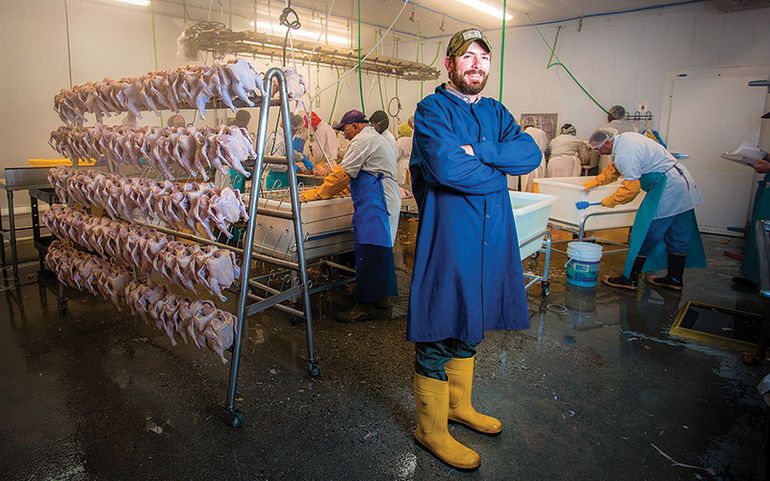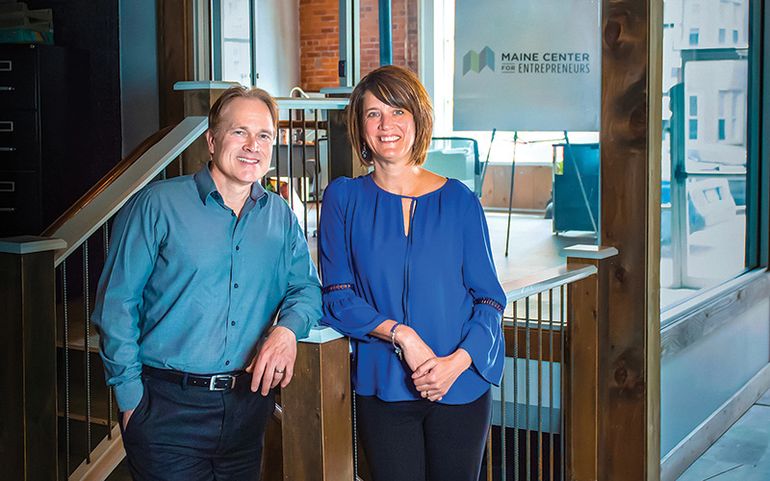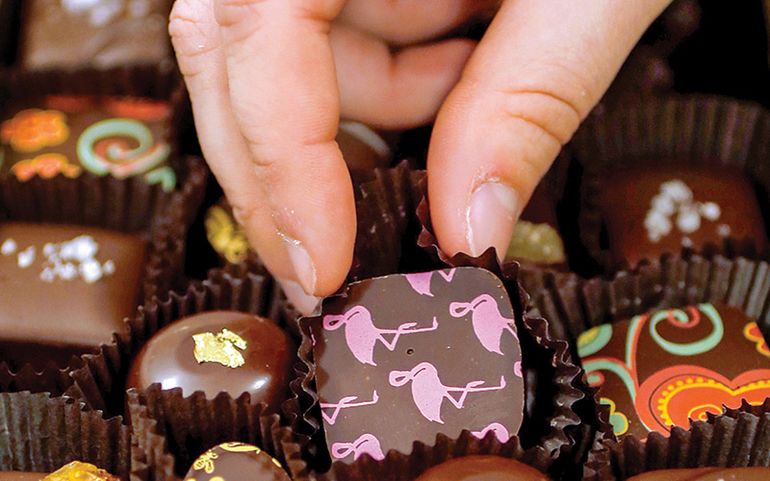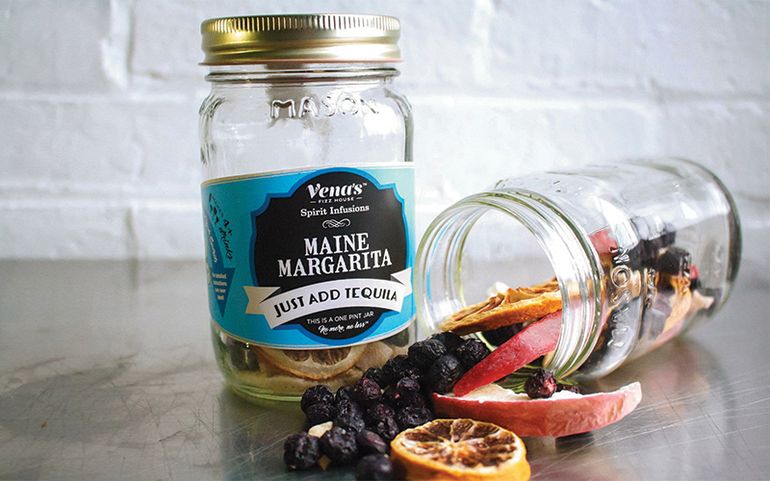Cultivator program prepares startup companies for second-level growth
Ryan Wilson was working for a farm and doing deliveries to restaurants, when he started asking chefs what they wanted that they couldn't get.
“They said 'duck,'” he recalls. “So I grew six ducks.”
Today, Wilson and Gina Simmons's Commonwealth Poultry Co., in Gardiner, processes 300,000 USDA-inspected, all-natural, additive-free, halal chickens, ducks, turkeys, rabbits and game fowl per year, works with commercial growers throughout New England and Pennsylvania, and employs about 30 people year-round.
Nevertheless, it's been learn-as-you-go since the company started in 2010.
“I don't have a business background. I'm just doing the best I can every day,” Wilson says. “I read everything I can. I work with the USDA. I have a system down that we repeat and repeat and repeat. And we've proved it to work over and over again.”
Even so, Wilson craved a better business foundation. So when he learned earlier this year about the Maine Center for Entrepreneurs' Cultivator Food, Beverage and Agriculture Scale-up Accelerator Program, for companies past the start-up stage and looking to grow, he leapt.
“I'm sure I could grow more, but I want to do it correctly instead of by the seat of my pants,” he says. “Okay, I'm doing it right, but what am I missing out on? What are the things that people who own this size business do, that I'm not doing? Plus I feel very responsible for my employees. I value giving people jobs and I want to increase the number and types of jobs.”
From start-up to scale-up
Starting up a company is hard. But figuring out how to scale a successful start-up to a new level of growth is a whole different bucket of challenges.
Maine Center for Entrepreneurs, which runs the entrepreneurial training program Top Gun, noticed the start-ups in that program often reach a certain level of revenue, then hit a wall in terms of growth and development, says Executive Director Tom Rainey.
Many organizations in Maine, like SCORE and the Small Business Development Center, focus on start-ups. MCE sees its role as helping companies that are ready to scale up.
So in April, MCE launched the Cultivator program. The program's focus on food, beverage and agriculture stems from a Harvard Business School study showing the industry is strong and has potential for growth in Maine.
“The skills necessary to start a business and go from a zero to half a million or a million dollars in revenue are very different from going from $1 million to $4 million,” says Rainey. “When you're an entrepreneur, you're trying new things, you're flying by the seat of your pants.”
Often in early stages businesses pivot from one concept to another. There's a different mindset involved in getting to the second stage of growth.
“By the time you get further along and ready to scale up, you should not be doing that level of experimentation anymore,” Rainey says. “It should be — you've tested the market, you have a team in place. It's more about the infrastructure, the processes and procedures, the mundane specifics, quite frankly, of getting the business growing to the next level. It's replicating your success on a large scale. It's a different mindset. So what we're trying to do is help these companies that have been in the start-up mode shift gears and start thinking more like a scalable business.”
Self-inflicted wounds
Maine Center for Entrepreneurs started in 1997 as a startup incubator, designed to help entrepreneurs avoid “self-inflicted wounds,” Rainey says. MCE has graduated over 200 businesses from its signature Top Gun program — a 15-week classroom-style program offering networking, workshopping and mentor meetings. Top Gun helps companies hone their pitches. It offers discussions in salesmanship, bootstrapping, hiring, firing and legal issues.
Beyond Top Gun, staffers provide one-on-one counseling and target workshops to hundreds of other Maine entrepreneurs. It has also developed a Maine Mentor Network with over 100 volunteer business mentors.
In 2016, MCE launched a scale-up pilot program, called E*Next to support the growth of more-established small and medium-size businesses. In 2017, MCE partnered with FocusMaine to adapt its scale-up program for a three-year period, calling it Cultivator, accepting 10 companies a year.
Criteria for participation in Cultivator include having a proven value-added product and scalable business model, annual revenue of at least $500,000 and a desire to grow and scale.
Eight 'cultivators'
Thirteen companies applied and eight have been accepted: Commonwealth Poultry; Belle Cove LLC, South Portland, seller of value-added seafood; Black Dinah Chocolatiers, Westbrook, maker of hand-crafted chocolates; Crown O'Maine Organic Cooperative, North Vassalboro, seller of Maine-grown foods; Mousam Valley Mushrooms, Springvale, family-owned cultivator of organic mushrooms; North Spore, cultivator of mushrooms and spawn for other commercial growers; Two Fat Cats Bakery, Portland and South Portland; and Vena's Fizz House, Portland, bar and mixology shop specializing in old-fashioned, all-natural fizz sodas, mocktails and custom cocktails.
Trial and error
Cultivator began in April. Over the next year, MCE will provide strategic assessments and planning sessions, tailored professional resources, and interactive business forums.
Cultivator Manager Sue Hanson, who has spent two decades in the food industry, says the companies face issues like whether to invest in automation to replace hand processing, food safety processes for large-scale production, development of marketing and distribution channels beyond Maine and hiring.
Belle Cove owner Grace Phillips plans to take advantage of Cultivator to broaden her market base for value-added seafood.
“It's all about trial and error,” says Phillips, a Hong Kong native who has been in the Maine 10 years.
Phillips, who has a background in management and product development, started exporting value-added Maine lobster to Asia in 2014.
“I said, 'OK, I have nothing to offer yet, but I'm going to Asia to get some connections,'” she recalls.
Since finding her first importer, Hong Kong has become her primary market for lobster, and now scallops and fin fish, too. For 2017, exports totaled 250,000 pounds for all products, a 25% increase from 2016. Now Phillips is looking at broadening her market base and leverage the Maine brand.
“Just in the past two years, you see a lot of value-added products popping up,” she says. “How can Belle Cove add value to the wonderful products we sell that are from Maine? We're focusing on building the Belle Cove brand by creating our own value-added products.”
Speaking with Mainebiz after her first meeting with the Cultivator assessment team, Phillips says she's already seeing results.
“They had great questions and comments,” she says. “When you're in the middle, sometimes you don't see what you don't see. But the assessment team looks at things more broadly or objectively. As a business owner, it's important to be open to other perspectives.”
Nailing down specifics
At Two Fat Cats, owner Stacy Begin is also looking to expand marketing and distribution. She originally worked in the nonprofit sector, most recently as program officer for the Davis Family Foundation. An enthusiastic home baker, she formed a baking company at home, still working at the foundation. By the second year, the bakery had taken over her house. In 2012, Begin and her husband, Matthew Holbrook, bought Two Fact Cats from its original owners, since then have doubled revenue and this year opened a second bakery, in South Portland.
Begin realized she had a general idea for the company's growth, but needed to nail down specifics. Cultivator came along at the right time.
“There are lots of opportunities out there, and you want pursue them all,” she says. “You need to decide, 'What am I going to concentrate on?' For us, it's looking at our shipping potential. We want to determine if that's an area of growth for us and, if it is, what do we need for production and investment and advertising and marketing?”
Whether it's helping business owners, like Begin, with specific goals, or others, like Wilson, who need an overall foundation, programs like Cultivator are critical, says Rainey.
“There's excitement around start-ups,” he says. “Generally, I think that people think that, once they're up and running and have a team on board, they're okay and they should just continue to grow. But that doesn't happen. What happens is, they hit a wall and they stop growing. That's what we've seen. So to devote energy and attention to that is critical.”
















Comments